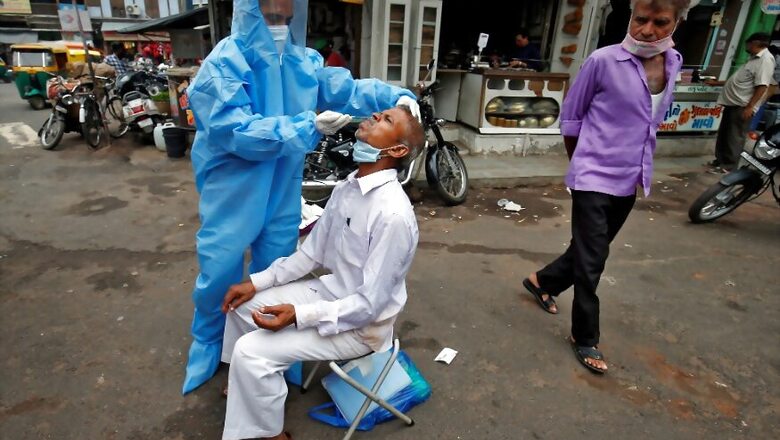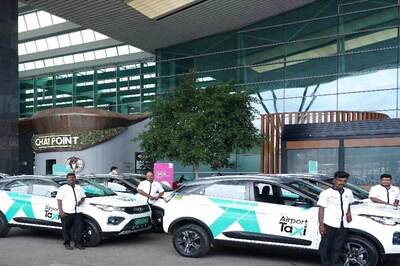
views
India's actual COVID-19 caseload is 3,58,692, while close to 18,000 people have recuperated from the disease in 24 hours taking the the number of recoveries to 6,53,750 which exceed active cases by 2,95,058, the Union Health Ministry said on Saturday.
Medical attention is being provided to all active cases, either in home isolation or in hospitals for severe cases, it said.
In a statement, the ministry said, "The last 24 hours saw 17,994 COVID-19 patients recovering. The recovery rate is now 63 per cent."
Timely, proactive, and graded strategy initiatives for effective coronavirus infection management in the country, led by the Centre and implemented by the states and Union Territories, have ensured that the actual COVID-19 caseload remains manageable, it said, adding that expansion of hospital infrastructure continuously has aided in increased recoveries.
Cumulatively, 1,34,33,742 swab samples have been tested till now, of which 3,61,024 were carried out on Friday raising the number of tests per million to 9734.6, the ministry said.
The Centre continues to support and supplement the efforts of the state governments by sending teams of experts to areas witnessing increase in caseload, it said.
With a surge in daily fresh COVID-19 cases in Bihar, West Bengal, Assam and Odisha, the Union health ministry has asked these states to make renewed efforts to suppress the transmission as well as to keep case fatality rate below one per cent.
With these states imposing lockdowns anew, the health ministry emphasised that the curbs should be utilised to focus on containment, surveillance and testing in the containment and buffer zones for early detection of cases and fatality management.
A central team has been deployed in Bihar to assist the state in assessment of COVID-19 management and to provide all necessary support.
The team comprising Joint Secretary Lav Agarwal, Dr SK Singh, Director, National Centre for Disease Control and Dr Neeraj Nischal, Associate Professor of medicine at AIIMS, New Delhi, will reach Bihar tomorrow.
"The focus of the containment strategy remains on house-to-house survey, perimeter control activities, timely contact tracing, surveillance of containment and buffer zones, aided by effective clinical management of severe cases through a standard of care approach," the ministry said.
The latest testing strategy of the Indian Council of Medical Research allows all registered medical practitioners to recommend testing. RT-PCR tests and rapid-antigen point of care tests, boosted by TruNat and CBNAAT have contributed to a surge in the number of samples tested, it said.

















Comments
0 comment